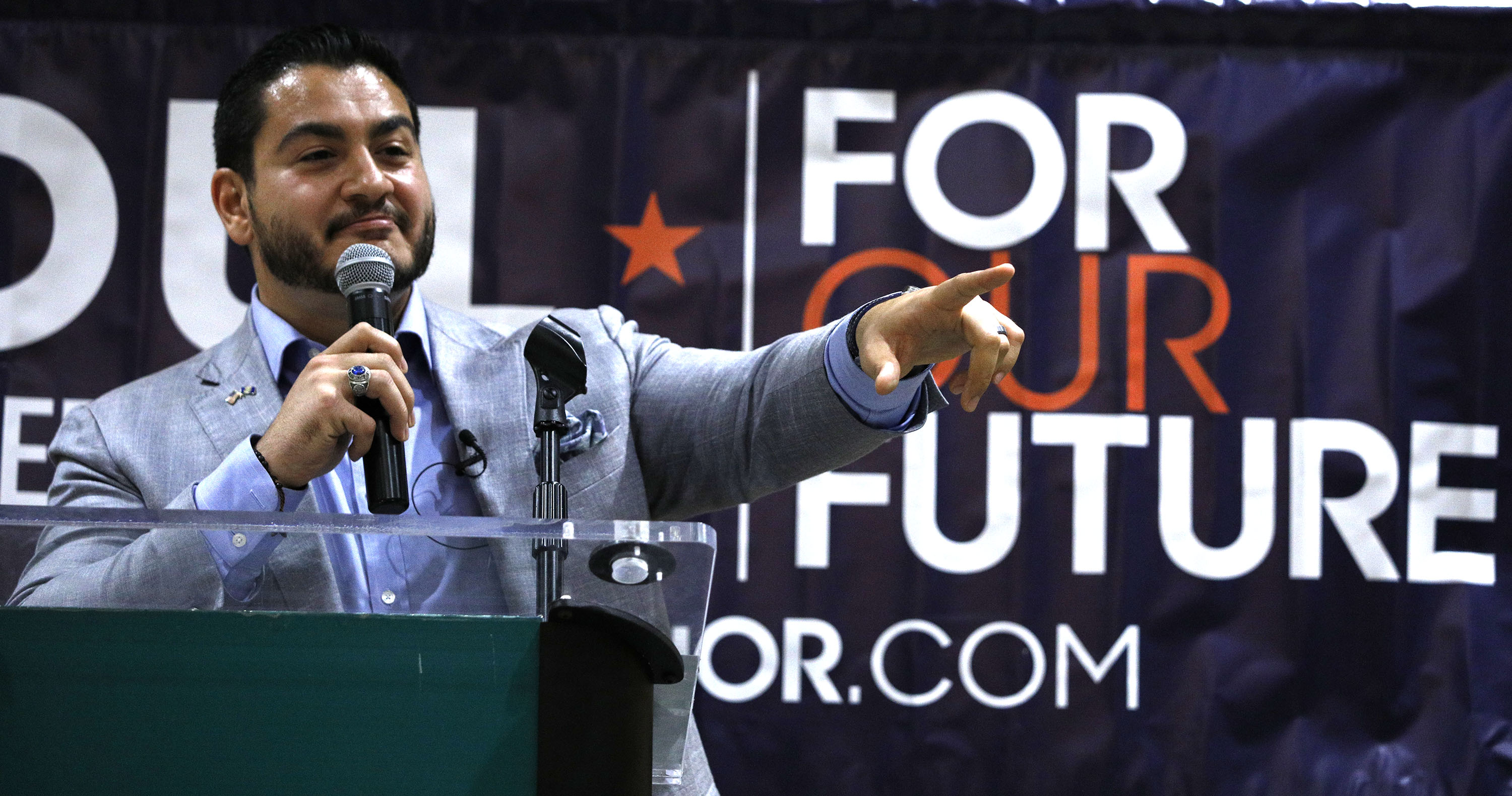Dozens of candidates running in Michigan’s primary on Tuesday are immigrants or children of immigrants and about half of them are Muslim, making the state’s primary race one of the most diverse in the country.
A report by the Detroit Free Press found at least 24 candidates running in southeast Michigan are immigrants or first-generation Americans. Half of them have roots in the Middle East or Arab countries, eight are immigrants or the children of immigrants from South Asia, and three have roots in Nigeria or Senegal.
Although anti-Muslim sentiment is at an all-time high in the country, Muslim Americans have run for office in record numbers across the country this election cycle, with Michigan boasting the highest number of Muslim candidates and the potential for several key firsts. Democratic gubernatorial candidate Abdul El-Sayed could become the nation’s first Muslim governor and Democratic congressional candidates Rashida Tlaib and Fayrouz Saad could become the first Muslim women elected to Congress. Tlaib is almost guaranteed to win the Congressional seat if she advances in the primary, as no Republican is vying for the seat.
Many of these Muslim candidates were motivated into action in large part by President Donald Trump’s Islamophobic rhetoric and policies, and they believe they are uniquely positioned to push back against bigotry.
Democratic candidate for state Senate Abraham Aiyash, who volunteered for Barack Obama’s presidential campaign and worked in local politics, had plans to go to medical school, but that changed after Trump’s first Muslim ban went into effect in January 2017.
“In that moment is when I started getting encouragement from friends and mentors to consider getting back into the political landscape,” Aiyash told The State News.
The state of Michigan, particularly the southeast area, which includes Detroit and Dearborn, is home to one of the largest Arab communities outside of the Middle East and one of the largest Muslim populations in the United States.
Hamtramck, Michigan, also located in the southeast of the state, is the first majority-Muslim city in the United States, which recently elected the first mostly Muslim city council. Forty-four percent of Hamtramck’s population are immigrants.
Southeast Michigan is also a hotbed for progressive politics, with Muslim voters in Dearborn overwhelmingly casting their ballots in favor of presidential candidate Bernie Sanders in the 2016 Democratic primaries. At least 115,000 Muslims in Michigan are registered Democrats. This bodes well for the Muslim Americans on the ballot, many of whom are running progressive platforms that include support for raising the minimum wage, implementing single-payer health care in the state, and shirking corporate money.
Despite these advances, Muslim American candidates in Michigan have faced major obstacles on the campaign trail.
“I literally had, I had, we’ll just say, very powerful people who call a lot of shots in the party sit me down and say, ‘We think you’re great,’” El-Sayed told Vice News. “‘You just, you know, it’s not that we’re racist. It’s just that we thinking people outside of Southeast Michigan are racist and so you can’t win.”
El-Sayed has also faced allegations from Republican gubernatorial candidate Patrick Colbeck that he has ties to the Muslim Brotherhood. His campaign office frequently receives death threats and he has experienced racism on the campaign trail.
“It is frustrating,” El-Sayed told Vice. “These questions are going to persist … I’m resigned to the facts of the world.”


